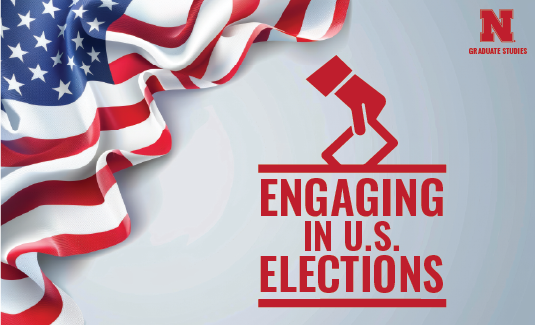
As the 2024 U.S. elections approaches on November 5, it is vital for students and community members to engage with the electoral process in an informed and meaningful way. Understanding the significance of voting and participating in related events can deepen our collective knowledge of democracy and foster a more engaged campus community. Here’s how to educate yourself, get involved, and access valuable resources during this election cycle.
1. Educate Yourself: Learning about the U.S. election system is a crucial first step. The U.S. elections involve several events, including primaries and a general election. In 2024, the general election will take place on November 5. To better understand these processes, visit Understanding U.S. Elections
2. Consider Your Sources: In an age of abundant information, seeking out nonpartisan news sources is important. Verify the accuracy of the news you consume, especially on social media. Aim for factual reports rather than opinions to get a clear picture of the political landscape.
3. Attend Events: UNL regularly hosts events that address current issues and the election. Keep an eye on the UNL Events Calendar to find activities and discussions that can help broaden your understanding of election-related topics.
4. Think Local: National elections often grab the spotlight, but state and local elections are just as important. Get to know the candidates and ballot issues in Nebraska. Websites like VoteSmart, and Elections and Voting in Nebraska and Campus Select offer non-partisan information to help you make informed decisions.
5. Get Involved on Campus: If you’re interested in hands-on participation, consider running for a position within student organizations, such as the Association of Students at the University of Nebraska (ASUN) You can influence campus policies and activities while gaining firsthand experience in the democratic process.
6. 2024 General Elections Guide: Join the Husker Vote Coalition, a nonpartisan university committee within the Student Leadership, Involvement, and Community Engagement Office, for tools you need to register, check your status, request an absentee ballot, find your polling place, and understand state-specific voting rules.
7. Post-Election Support and Resources: Election seasons can be stressful, and taking care of your well-being is essential. The National Center for Faculty Development & Diversity offers strategies for navigating classroom dynamics, addressing incivility, and promoting self-care. For educators, the Anti-Defamation League provides guides for continuing election-related discussions constructively and inclusively.
8. Manage Politically Induced Stress: If you’re feeling overwhelmed by the election, UNL CAPS has provided strategies to help you recognize and manage anxiety and stress related to political discussions. Remember, it's okay to seek support and take breaks when needed.
In summary, getting involved in the election process, both nationally and locally, not only enriches our understanding of democracy but also strengthens our community. Educating ourselves, engaging in discussions, and accessing support resources, we can navigate this election season with a more informed and balanced perspective.